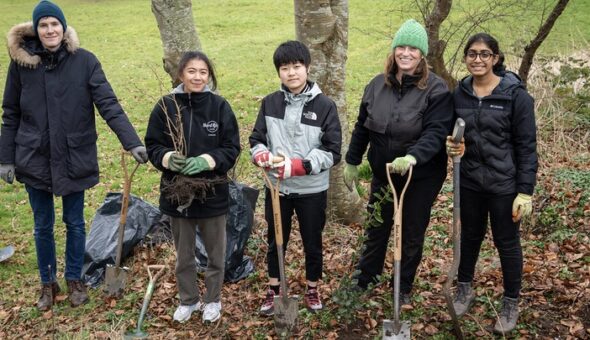Like many other teams across the Uni, we have recently been reviewing our KPIs and thinking about how we continue to measure the impact of the university's external affairs work. This has also come at a time when civic professionals across HE are engaged in conversations around measuring their work, with organisations such as the Civic University Network, the National Civic Impact Accelerator (NCIA) and the City-Region Economic Development Institute (CityREDI) leading discussions and carrying out research into best practice, common challenges and potential solutions.
Additionally, towards the end of 2024 Bridget Phillipson, Secretary of State for Education, set out the Labour Government's priorities for HE reform with civic activity front and centre. It's widely felt across the national HE civic space that this will soon be followed with metrics and assessments, and therefore, getting ahead of the game at this early stage, as well as working with organisations representing the HE civic sector to influence how civic activity is to be measured, is essential.
Today I spent an hour chatting with Johannes, a data analyst at CityREDI, who is exploring what civic professionals like me are currently doing to measure impact, and what we see as the main challenges and opportunities. It was a hugely useful discussion, both in terms of reflecting on my own experiences and in exploring ideas for change.
Currently, impact is measured by recording feedback, both from internal and external stakeholders, on an ongoing basis. I also (in lieu of having budget and time to carry out my own analyses) always look for opportunities to tap into other people's activities to get the information I need - for example if the University is consulting with its stakeholders on strategy or brand, I can work with those teams to also gain insight from those consultations into our civic relationships.
We're also trying something different with our new Economic Impact Assessment. Last carried out in 2022, we're now renewing this but with a broader focus, measuring not just economic but also social and environmental impacts of the university, and this also has the potential to show where we are and are not performing in the civic space.
At a national level, the Civic University Network has recently begun work developing a 'Framework for Civic Impact' - a tool and common language that civic professionals and HE institutions can use to comprehensively map the civic work they are doing and pose questions as to its impact and effectiveness.
And the National Civic Impact Accelerator is pulling together voices from the sector to start lobbying central government on how the civic activities of universities should be measured, and how best practice should be shared.
These are early days in the development of widely agreed measures of civic impacts for Higher Education, and a very exciting if challenging time to be in this role, with a lot of learning and development required but also a huge amount of potential for progress that could have real, tangible positive impact for our institution, the communities we live and operate in, and the people we interact with every day.
Respond


